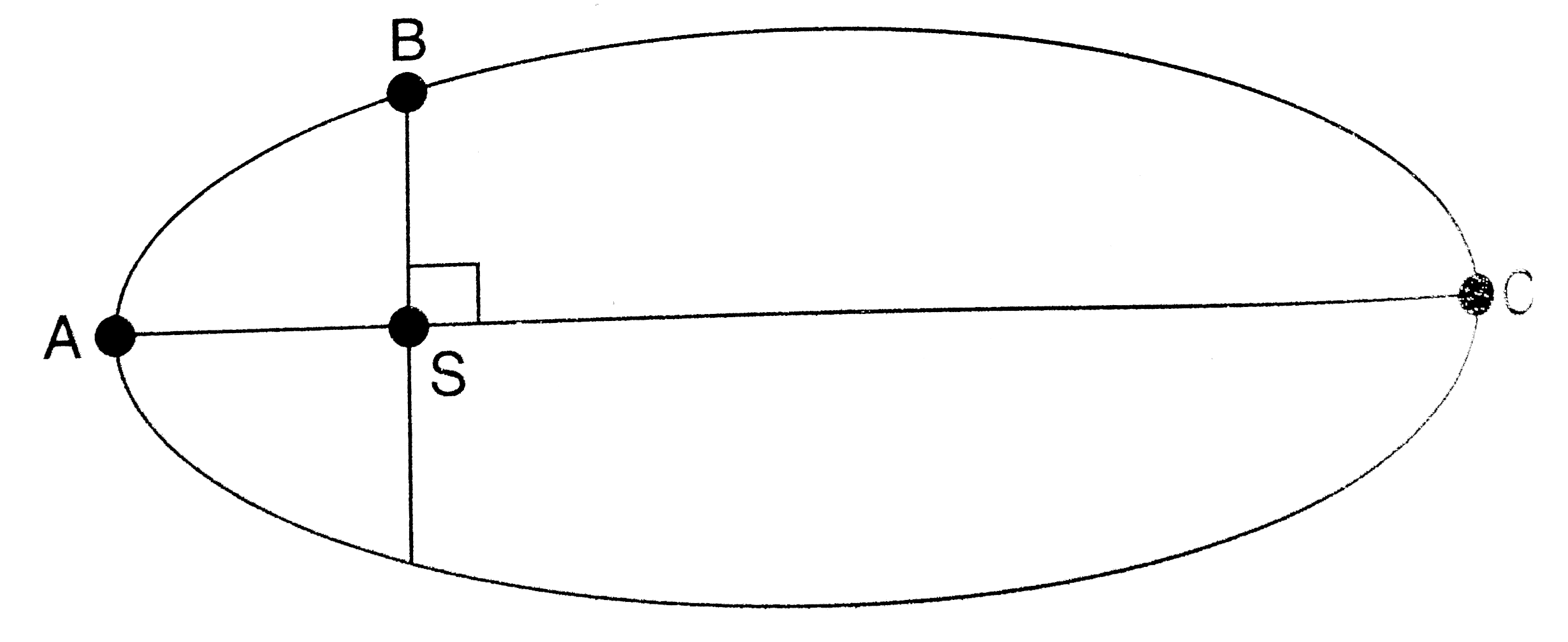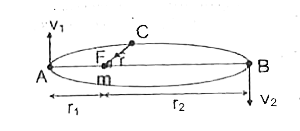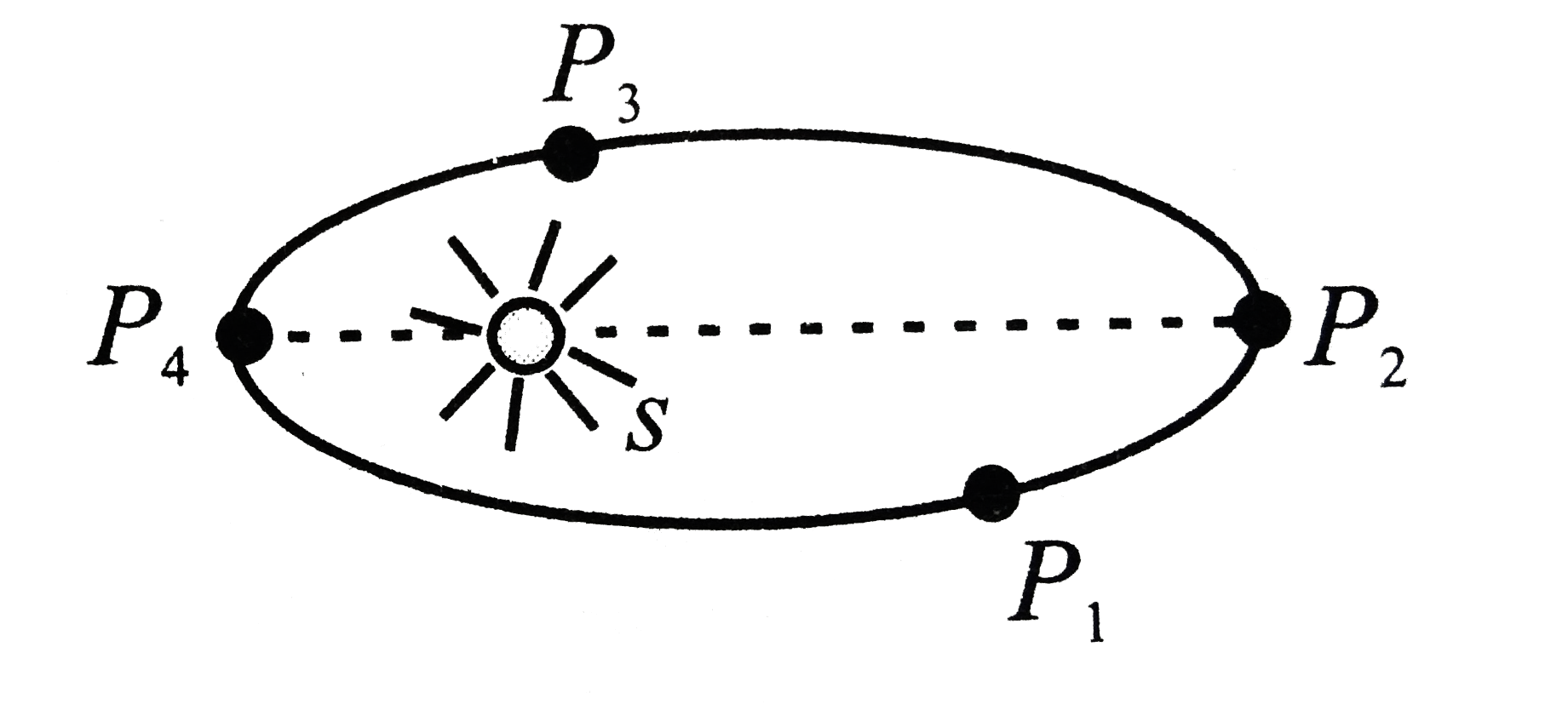The kinetic energies of a planet in an elliptical orbit about the Sun, at positions A,B and C are KA,KB and KC respectively. AC is the major axis and SB is perpendicular to AC at the position of the sun as shown in the figure. Then

KA<KB<KC
KA>KB>KC
KB<KA<KC
KB>KA>KC
The correct Answer is:B

\Point A is perihelion and C is aphelion.
So, vA>vB>vC
As kinetic energy k=1/2mv2 or k∝v2
So , KA>KB>KC
Topper's Solved these Questions
- BOOK - MTG GUIDECHAPTER - GRAVITATIONEXERCISE - CHECK YOUR NEET VITALS25videos
GRAVITATION
- BOOK - MTG GUIDECHAPTER - BEHAVIOUR OF PERFECT GAS AND KINETIC THEORYEXERCISE - AIPMT / NEET (MCQs)11videos
BEHAVIOUR OF PERFECT GAS AND KINETIC THEORY
- BOOK - MTG GUIDECHAPTER - KINEMATICS EXERCISE - AIPMT/ NEET MCQs31videos
KINEMATICS
Similar Questions
Knowledge Check
- Question 1 - Select One
The kinetic energies of a planet in an elliptical orbit about the Sun, at positions A,B and C are KA,KB and KC respectively. AC is the major axis and SB is perpendicular to AC at the position of the sun as shown in the figure. Then
 AKB<KA<KCBKA>KB>KCCKA<KB<KCDKB>KA>KC
AKB<KA<KCBKA>KB>KCCKA<KB<KCDKB>KA>KC - Question 2 - Select One
A planet revolves in an elliptical orbit around the sun. The semi-major and minor axes are a and b , then the time period is given by :
AT2∝b3BT2∝(a+b2)3CT2∝a3DT2∝(a−b2)3 - Question 3 - Select One
A planet is revolving in an elliptical orbit about the sun. Its closest distance is R. If K1andK2 are the maximum and minimum kinetic energies of the planet, K1/K2=
AR/rB√R/rCR2/r2D1
Figure showns a planet in an elliptical orbit around the sun S. Where is the kinetic energy of the planet maximum?
 View Solution
View SolutionA planet revolves in an ellipticle orbit around the sun. the semimjor and semiminor axis are a and b. How time-period is related with them?
View SolutionIn the figure shown a planet moves in an elliptical orbit around the sun. Compare the speeds, linear and angular momenta at the points A and B.
 View Solution
View SolutionFigure shows a planet in an elliptical orbit around the Sun S. Where is the kinetic energy of the planet maximum?
 View Solution
View SolutionA planet revolves round the sun in an elliptical orbit of semi minor and semi major axes x and y respectively. Then the time period of revolution is proportional to
View Solution


